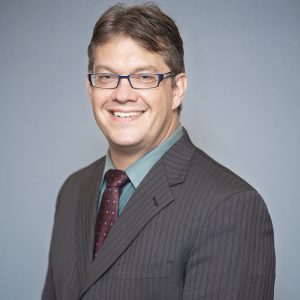“Properly disclosing your expert witnesses can prevent severe sanctions, or in the case of Oxygen Frog, the loss of a favorable jury verdict on appeal.”
 Federal Rule of Evidence 702 makes clear that a qualified expert may testify if he or she could help a trier of fact understand evidence and facts at issue. Fairness and reliability are the lineaments of Rule 702 and other rules governing expert discovery. Simply put, each party is given the opportunity to present expert testimony, and to challenge that of the opposing party. As gatekeepers of expert testimony, judges are careful not to give one party an unfair advantage over another regardless of the type of expert presented.
Federal Rule of Evidence 702 makes clear that a qualified expert may testify if he or she could help a trier of fact understand evidence and facts at issue. Fairness and reliability are the lineaments of Rule 702 and other rules governing expert discovery. Simply put, each party is given the opportunity to present expert testimony, and to challenge that of the opposing party. As gatekeepers of expert testimony, judges are careful not to give one party an unfair advantage over another regardless of the type of expert presented.
The U.S. Court of Appeals for the Federal Circuit recently found that the District Court for the Northern District of Florida abused its discretion by allowing unqualified expert testimony concerning the invalidity of a patent. HVLPO2, LLC v. Oxygen Frog, LLC, Case No. 19-1649 (Fed. Cir. Feb. 5, 2020) (Moore, J) involved the infringement of patents related to an oxygen supply management apparatus for glass blowing. In brief summary, the district court granted a partial summary judgment to HVLPO2, holding that Oxygen Frog infringed several patent claims. At trial, Oxygen Frog challenged the validity of the patents presenting a glass blowing artist as a “fact witness” to opine that prior art – including his own reference – rendered the claimed apparatus obvious. HVLPO2 objected to his testimony as improper expert testimony, but the district court overruled the objection and instead provided a limiting instruction. The jury rendered its verdict that the claims-at-issue were invalid as obvious. On appeal the Federal Circuit held it was an abuse of discretion to allow the glass blowing artist to provide expert opinion concerning obviousness of the patented glass blowing apparatus.
No Surprise: Principles of Fairness Underlie Expert Disclosure Rules
It is important to note that the issue before the Court was not the qualifications of the witness, but rather how Oxygen Frog’s attorneys proffered his testimony. In patent law it is an abuse of discretion to permit a witness to testify as an expert on issues of noninfringement or invalidity unless that witness is qualified as an expert in the pertinent art. See. e.g. Sundance, Inc. v. DeMonte Fabricating Ltd., 550 F.3d 1356, 1363 (Fed. Cir. 2008). However, nothing in the Federal Circuit’s opinion attacked the actual qualifications of the artist; the Court was silent as to the artist’s credentials and whether he may have been qualified, or at least qualifiable, to present expert opinion in this matter. As a glass blowing artist – and the creator of a YouTube video that was cited as prior art – he very well may have been able to testify as an expert in this patent dispute, if he were proffered as such.
However, Oxygen Frog did not disclose the artist as an expert witness, nor did the artist submit an expert report providing the bases of his opinion and supporting materials pursuant to Fed. R. Civ. P. 26(a)(2)(A) and 26(a)(2)(B). The Court recognized the substantial prejudice this caused to HVLPO2:
The Federal Rules of Evidence and those of Civil Procedure carefully govern expert testimony. Federal Rule of Civil Procedure 26 requires for example that experts be disclosed to the opposing party along with a written report which contains all opinions of the expert, the reasons and bases for those opinions, and all facts relied upon in the formation of the opinion. Fed. R. Civ. P. 26(a)(2). HVO was not provided with any such disclosure of Mr. Piebes . . . [whose] opinion testimony was directed to the central legal and technical question at trial: whether HVO’s asserted patent claims were invalid for obviousness.
HVLPO2, LLC, (Fed. Cir. Feb. 5, 2020) at 7.
Moreover, while the Federal Circuit agreed that an instruction to disregard the inadmissible testimony may have cured the error, it concluded that the district court’s actual instruction allowed the jury to consider the improper expert testimony, and thus could not cure its prejudicial effect:
There is no way to know whether Mr. Piebes’ improper testimony provided some or all of the basis for the jury’s decision. Not only did the district court’s admission of Mr. Piebes’ improper testimony deprive HVO of its right to have the question of obviousness decided based on admissible, qualified expert testimony, it prejudiced HVO by not affording it the appropriate procedures for testing such testimony . . . Because expert testimony on ultimate issues carries with it the potential to significantly impact a jury’s decision, the expert witness discovery rules are designed to allow both sides in a case to prepare their cases adequately and to prevent surprise.
Id. at 7 (internal citations omitted).
The Court recognized that the disputed testimony concerned the witnesses’ own prior art reference and how it allegedly helped invalidate the patents-in-suit. Indeed, this has the hallmarks of expert, not a fact witness testimony. As such, Mr. Piebes should have provided expert disclosures, including a timely written expert report, pursuant to Rule 26(a)(2)(B).
Make No Mistake about Expert Disclosure, But if You Do . . .
Fed. R. Civ. P. 37 provides strong inducement for full and complete expert disclosure. A party who fails to disclose the information required by Rule 26(a)(2)(B) faces automatic and mandatory sanctions, including possible exclusion of the expert’s testimony, unless such failure was substantially justified or harmless. Oxygen Frog’s failure to disclose Mr. Piebes as an expert witness was neither justified nor harmless, so a new trial was warranted.
Of course, this situation could have been avoided if Oxygen Frog qualified Mr. Piebes as an expert in the first place. It is important to remember that while fact witnesses cannot provide expert testimony, expert witnesses can offer factual testimony. These “hybrid” fact/expert witnesses provide factual testimony further buttressed with expert knowledge. A classic example of a hybrid witness is a treating physician testifying in a medical malpractice suit against him. Thus, if your witness has both factual and expert knowledge pertinent to their testimony in your case, you should always qualify that witness as an expert.
Hybrid experts are still required to make certain disclosures under the federal rules, though not as extensive as those required of retained experts under Rule 26(a)(2)(B). Rule 26 was amended in 2010 to distinguish the disclosure requirements of hybrid and retained expert witnesses. Hybrid experts need only comply with Fed. R. Civ. P. 26(a)(2)(C) which requires the disclosure of “subject matter on which the witness is expected to present evidence under Federal Rule of Evidence 702, 703, or 705,” (Fed. R. Civ. P. 26(a)(2)(C(i)) and a “summary of the facts and opinions to which the witness is expected to testify.” Fed. R. Civ. P. 26(a)(2)(C)(ii). Unless ordered otherwise, hybrid experts do not need to submit detailed expert reports like those required by Fed. R. Civ. P. 26(a)(2)(B).
Unfortunately for Oxygen Frog, it never made these disclosures, causing them to lose their favorable verdict and valuable testimony underlying that verdict. So what can Oxygen Frog do about this now? It is unclear whether it may be able to proffer Mr. Piebes as an expert in the new trial. The decision concerning whether to reopen expert discovery is that of the district judge. Assuming the judge allows supplemental discovery, Oxygen Frog will need to decide if and how to qualify Mr. Piebes as an expert witness. It may not be necessary since Oxygen Frog previously relied on its own CEO to provide expert testimony, but it may be prudent to use a neutral non-party expert in the second trial. This will be a strategic decision for Oxygen Frog to make if given this opportunity.
You may find yourself in a position where you have identified a fact witness that you later decide should have been offered as an expert. If you do, don’t worry, all is not lost. You should promptly notify opposing counsel and provide the required disclosures pursuant to either Fed. R. Civ. P. 26(a)(2)(B) or 26(a)(2)(C). Properly disclosing your expert witnesses can prevent severe sanctions, or in the case of Oxygen Frog, the loss of a favorable jury verdict on appeal. The timing of expert disclosures is at least as important as the subject matter disclosed, and from a procedural standpoint, earlier is always better. In addition to federal rules, you should consult local rules and practices concerning disclosure requirements. No matter your jurisdiction, court, or judge, remember that the purpose of expert disclosure rules remains the same – to eliminate unfair surprise, and ensure a fair and just trial.
Image Source: Deposit Photos
Vector ID: 18832775
Copyright: interactimages

![[IPWatchdog Logo]](https://ipwatchdog.com/wp-content/themes/IPWatchdog%20-%202023/assets/images/temp/logo-small@2x.png)

![[Advertisement]](https://ipwatchdog.com/wp-content/uploads/2024/04/UnitedLex-May-2-2024-sidebar-700x500-1.jpg)
![[Advertisement]](https://ipwatchdog.com/wp-content/uploads/2024/04/Artificial-Intelligence-2024-REPLAY-sidebar-700x500-corrected.jpg)
![[Advertisement]](https://ipwatchdog.com/wp-content/uploads/2024/04/Patent-Litigation-Masters-2024-sidebar-700x500-1.jpg)

![[Advertisement]](https://ipwatchdog.com/wp-content/uploads/2021/12/WEBINAR-336-x-280-px.png)
![[Advertisement]](https://ipwatchdog.com/wp-content/uploads/2021/12/2021-Patent-Practice-on-Demand-recorded-Feb-2021-336-x-280.jpg)
![[Advertisement]](https://ipwatchdog.com/wp-content/uploads/2021/12/Ad-4-The-Invent-Patent-System™.png)






Join the Discussion
No comments yet.